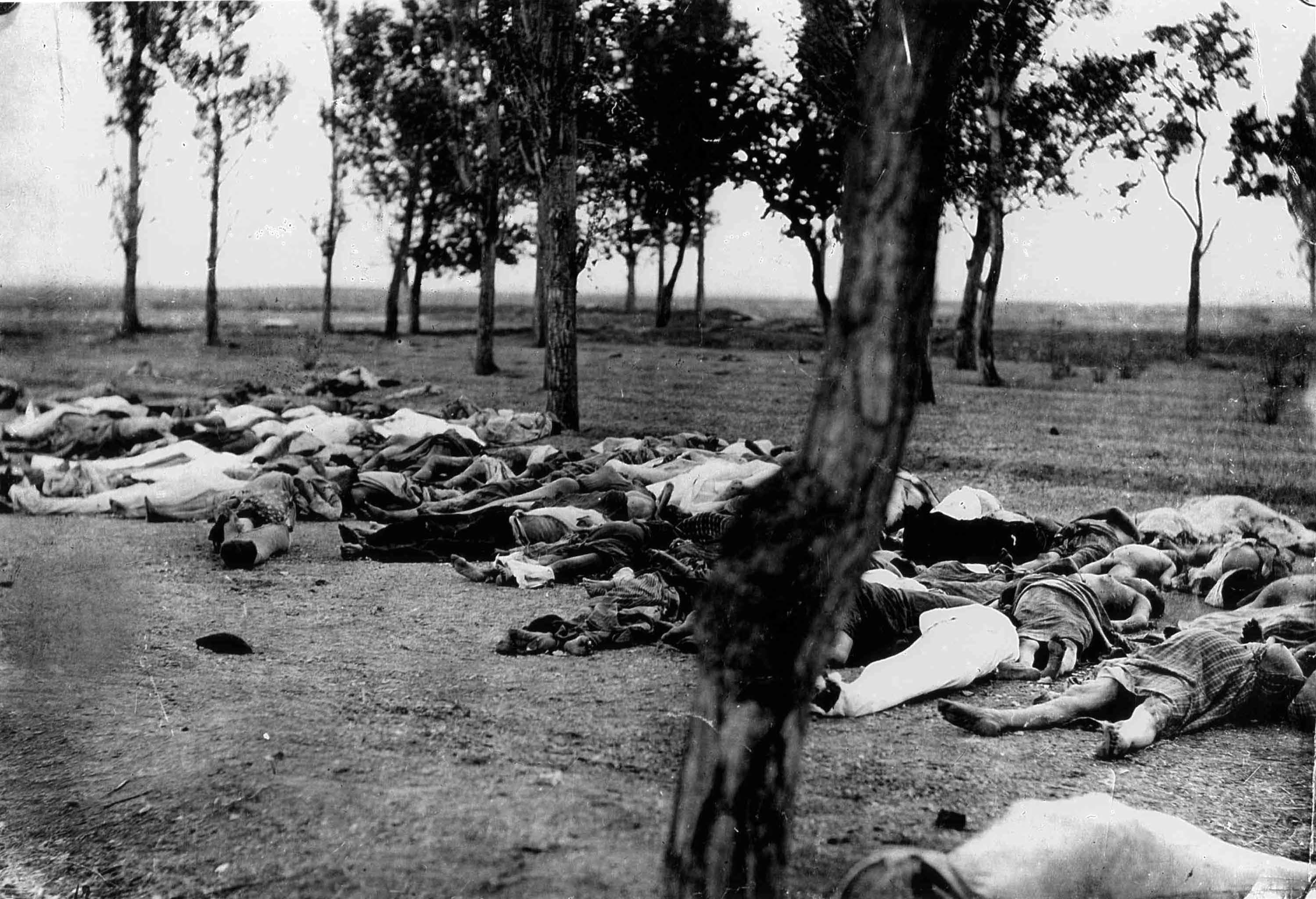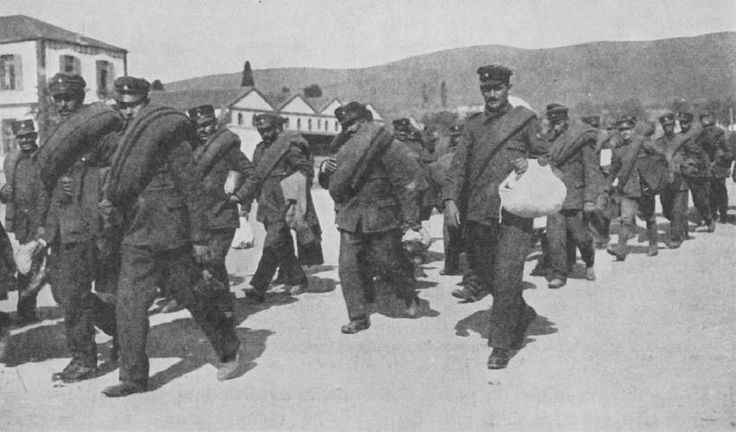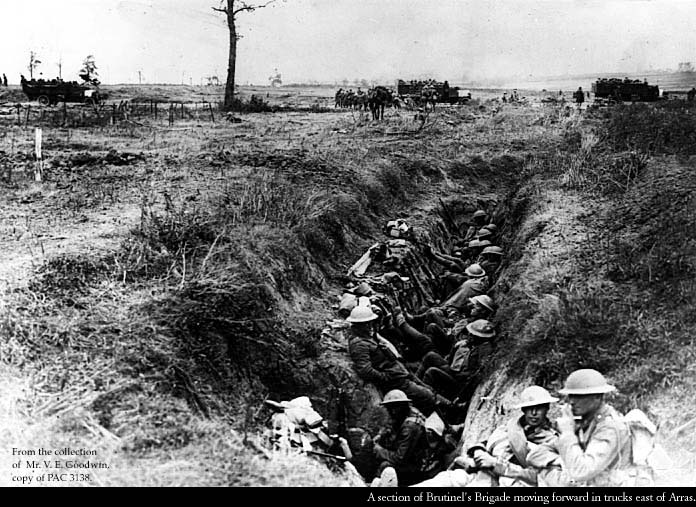Small States Around the World Especially Vulnerable;
Endgame at Kut in Iraq, A Humiliation for the British
Special to The Great War Project
(19-22 April) The war has unleashed deep ethnic hatreds all across Europe, the Middle East and even in the far Pacific.
By now, the Ottoman Turks have slaughtered nearly one million ethnic Armenians living in Turkey. Their excuse: they claim the Armenians “are in league with the Russians,” writes historian Adam Hochschild. The Turks and the Russians are engaged in a bloody standoff in the Caucasus, where many Armenians live.

The Armenian dead, date uncertain.
“No one knows exactly how many Armenians perished,” Hochschild observes, “but most scholars estimate the number at one to one-and-a-half million.”
But that is not the only ethnic rivalry set free by the war.
“The Ottoman Empire was also unleashing a reign of pillage, terror, and village-burning on its Greek population, leaving thousands dead and hundreds of thousands conscripted as forced labor.”
What’s more, “in the perennial tinderbox of the Balkans, old enmities among Serbs, Croats, Muslims, Bulgarians, and others helped Austria-Hungary carry out a ruthless occupation of Serbia,” reports Hochschild.”
“Everywhere, it seemed, the war had undammed reservoirs of hatred long kept in check.”
And everywhere it seems, these smaller states are being carved up by larger powers in an effort to grab the ultimate spoils of war. Hochschild reports “Bulgaria, promised chunks of Serbia, had joined the Central Powers” Germany and Austria-Hungary; Greece promised pieces of Turkey; and Romania, its eye on Austro-Hungarian territory.”

Greek troops mobilize against possible Bulgarian attack, date uncertain.
Even in the Pacific, far from the battlefields of Europe and the Middle East, there is the same struggle over territory, this time in the colonial territories held by the great powers.
“In the Pacific,” Hochschild reports, “Japan had jumped into the fray, helping itself to some of Germany’s island colonies, and aided by British troops, to the German-controlled port of Tsingtao in China.”
Australia and New Zealand seize German Samoa, New Guinea, and the Solomon Islands.
“From desert and rain forest to remote atolls, the war was engulfing the globe.”
In Mesopotamia, the plight of the 13,000 British and Indian soldiers in the town of Kut is on the brink of disaster.
There is a contingent of British troops near Kut, their job to break the siege and save their comrades. But so far, their attacks fail in the face of a superior Ottoman force.
The relief force mobilizes for one last drive on Kut, writes historian Eugene Rogan. “On 17 April, the British attack on the Ottoman positions….was driven back by an overpowering Ottoman counter-attack.” The British forces collapse in the face of the Ottoman onslaught.

British defensive position at Kut in Mesopotamia, 1916.
Four days later, the British launch one last desperate attack to save the force at Kut. It too fails. The two sides call a short truce to remove their dead from the battlefield. The battle is over.
“In the four months of fighting to free the 13,000 troops in Kut,” concludes Rogan, “the relief force had suffered over 23,000 casualties.”
On 22 April, the British commanding general and his officers called a halt to operations. “Their exhausted and demoralized troops could do no more.”
The British and Indian troops inside Kut are now at the mercy of the Ottoman forces.
